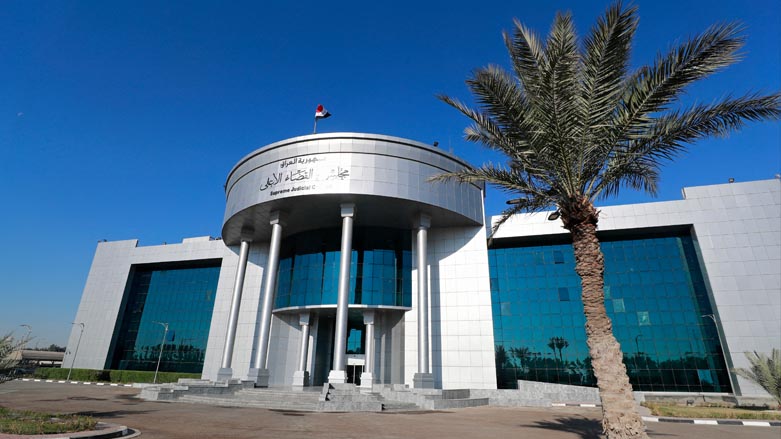Al-Karkh criminal court issues death sentence for genocide against Yezidi Kurds
The ruling was issued based on the provisions of Article Four/1 in terms of Article Two/1,3,4 of the Anti-Terrorism Law No. 13 of 2005, and in reference to Article 7/First of the Yezidi Women Survivors Law No. (8) of 2021.

Erbil (Kurdistan24) – On Tuesday, June 4, 2024, the al-Karkh Criminal Court issued a death sentence by hanging to a criminal convicted of committing genocide against Yezidi citizens.
The Supreme Judicial Council stated, “The criminal, along with members of his military detachment, executed a number of Yezidi citizens and buried them after filming and publishing the video clips on social media sites affiliated with terrorist gangs. The individual also participated in attacks against security forces in the Nineveh and Salah al-Din governorates.”
The ruling was issued based on the provisions of Article Four/1 in terms of Article Two/1,3,4 of the Anti-Terrorism Law No. 13 of 2005, and in reference to Article 7/First of the Yezidi Women Survivors Law No. (8) of 2021.
In Aug. 2014, ISIS militants attacked the Yezidi-majority town of Sinjar and nearby villages, killing at least 5,000 Yezidis as well as enslaving about 6,000 women and minors. Around 400,000 others were displaced by the offensive.
Most of the religious community fled to the Kurdistan Region, while others resettled in neighboring countries or Western states.
Others were not as lucky and remained stranded in the war zone, where they experienced atrocities and mass executions at the hands of the extremist group for years. Militants subjected women and girls to sexual slavery and human trafficking kidnapped children, forced religious conversions, and executed scores of men.
Read More: We must ensure Yezidis return to Sinjar, says PM Barzani
Over the nine years since then, much of Sinjar remains in rubble, and very few of its former residents have returned to their homes.
The Kurdish-Kurmanji-speaking community has suffered at least 72 genocides.
Since the liberation of Mosul and the Nineveh Plain from ISIS, 61 mass graves have been excavated and about 240 bodies have been handed over to their relatives. Yazidi citizens may keep their eyes on the mass grave until the end of the excavation process.
Read More: Exhumation of Alo Antar Mass Grave Begins in Tal Afar
The 15-meter-deep pit is located northwest of the city of Tal Afar. Witnesses say it is one of the largest mass graves of ISIS victims.
It is estimated that about 2,000 people were shot dead there. Although the excavation of the grave will be difficult due to a decade of rainwater and floods permeating the pit, the process is expected to be completed within four months.